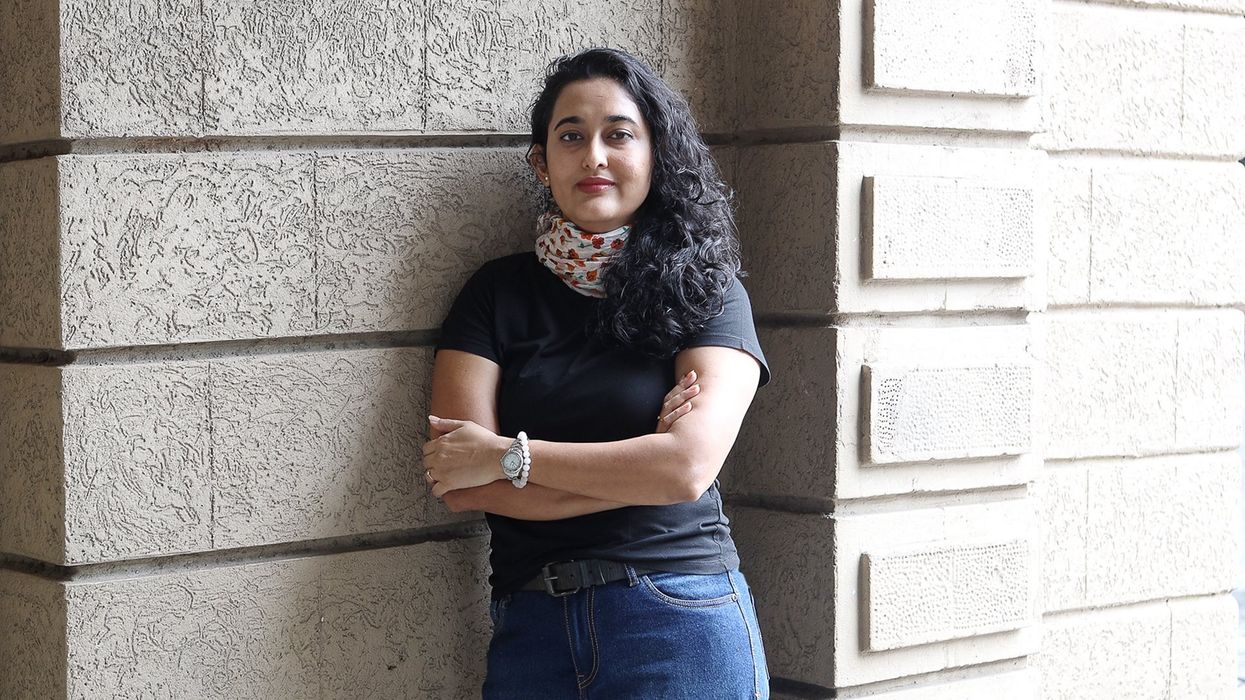A DECISION by Vedashree Khambete-Sharma to set a Jane Austen-style story in 1970s Bombay led towards her newly published novel What Will People Think?
The Pride and Prejudice-inspired romance revolving around a middle-class mother from the state of Maharashtra trying get her four daughters married off in an overcrowded city, revolves around community, family and love.
The witty story follows the sisters, including a Bollywood obsessed one, from dinners to parties and weddings. The author has successfully combined various influences to deliver a new literary experience, which tackles various relatable themes.
Eastern Eye caught up with the Mumbai-based writer to discuss her fifth novel and first literary romance.
What first connected you to writing?
As a teenager, I used to write a diary and it helped me process my thoughts and feelings better. Somewhere, that writing habit turned into a need.
And to this day, writing things down helps me find both clarity and calm.
What inspired your new novel?
A chance conversation with a friend about Gurinder Chadha’s Bride & Prejudice, and the realisation that an Indian adaptation of Jane Austen’s novel could be quite powerful and relatable – if the heroine were dusky-skinned and feisty instead of fair-skinned and shrewish.
Tell us a little bit about the story?
What Will People Think? is the story of Ila Bendre, a young woman belonging to the fairskinned Konkanastha Brahmin community in Maharashtra. As the only dusky daughter in her family, she has decided to pursue a career instead of getting married, as she is sure the fairness-obsessed marriage market will reject her unless she has a fat dowry. Let’s just say things don’t go quite the way she plans.
Why did you decide to set the story in the 1970s?
I began writing the book in the pandemic, at a time when there was an onslaught of terrible news. I wanted to escape to a simpler time, one where the problems, scandals and romance, everything was gentler. The 1970s fit that bill.
What was the biggest challenge you faced writing this book?
I was born in the 1980s so I’ve not grown up in the world I was writing about. To get things right, I had to rely on a lot of research and conversations with people who were alive and young in the 1970s, who had seen the city as it was then, and had encountered the social mores and zeitgeist of the community at that time.
Even though the story is set in the past, are any of the characters and incidents based on real life?
A lot of the instances of colourism, dowry stories and marriage market anecdotes come from things I’ve seen and heard in real life.
What is your own favourite part of the book?
I think Ila’s confrontation with her mother is my favourite. Throughout the book, she hides a lot of emotion under the veneer of sarcasm and wit.
So, to see her finally speak her mind and show her vulnerable side was interesting to write and read.
Who are you hoping this book connects with?
Oh, everyone who has ever been told that they are somehow not good enough – including for marriage or a career. Anyone who has just been under-estimated will relate to Ila.
What inspired the interesting title?
It’s fairly commonplace in southeast Asia, this fear of society’s judgment. If you don’t fit in somehow, or dare to do something other than what’s expected by society, the immediate fear is “what will people say?” or “what will people think?”
The book is set in Mumbai and you live there too. What do you most love about the city?
The sea. In a city that’s home to both the incredibly rich as well as the heart-wrenchingly poor, the sea is the one true equaliser. Both the owner of the Rolls Royce as well as the boy who wipes it for a tip, have equal right to sit by the sea, listen to its crashing waves and dream up a new future.
What kind of books do you enjoy reading?
I love books that take me to another time or place, somewhere I’ve never been. Books that let me have experiences I never could in real life. So, everything from historical fiction and science fiction/fantasy to period romances and murder mysteries.
What can we expect next from you?
I’m not quite ready to leave the 1970s yet – there is a blessed dearth of AI there. So, if the literary gods so allow, possibly another novel set in that decade, just as full of joy, wit and warmth as What Will People Think?
Why should we all pick up your book?
To laugh, cry and learn about a culture you probably haven’t read much about before. And to experience life as young women did and do – in all its romantic, unjust, hilarious glory.
What Will People Think? Corvus, Hardback, 17.99. Also available as an e-book; www.veda shreeks.com




